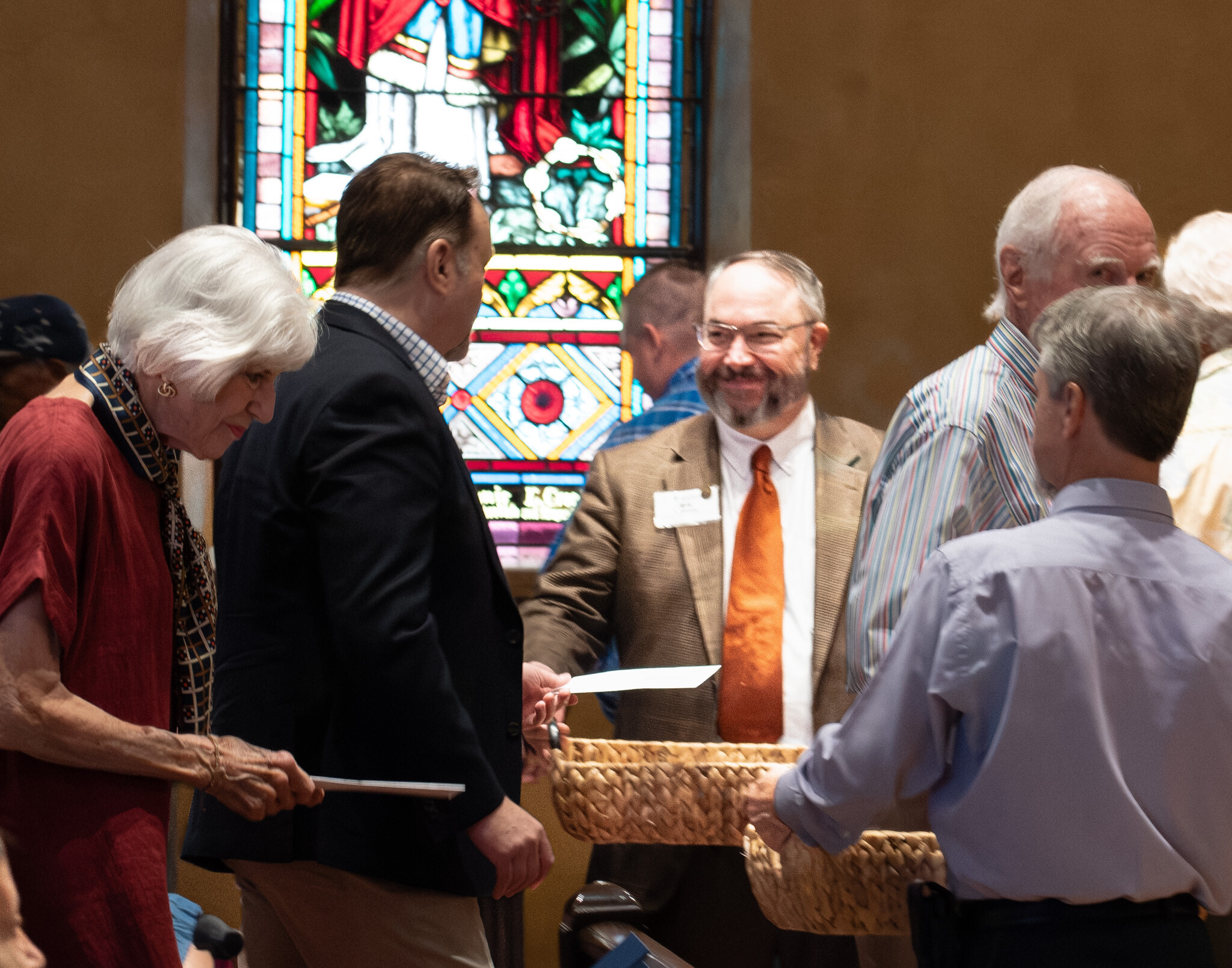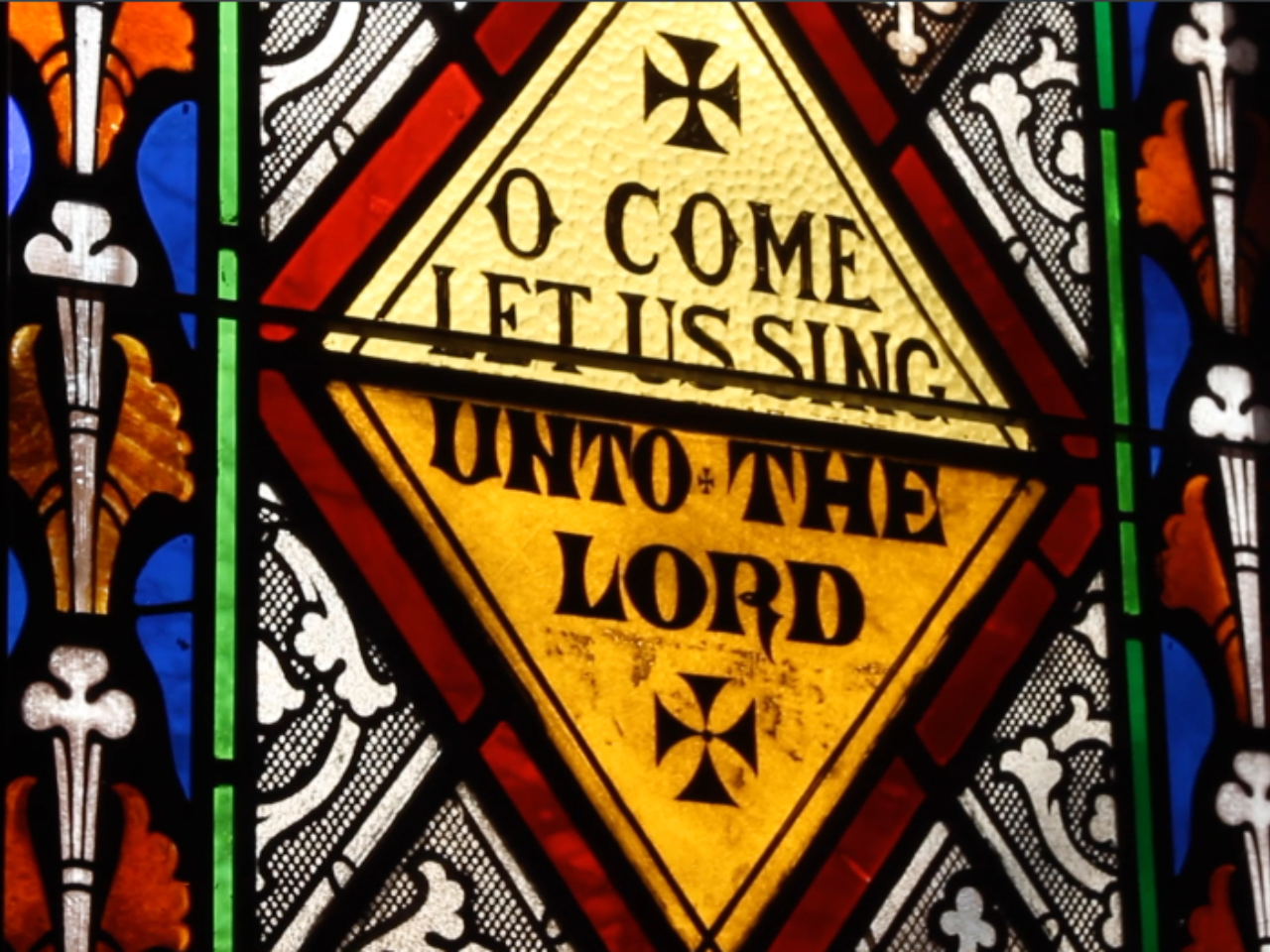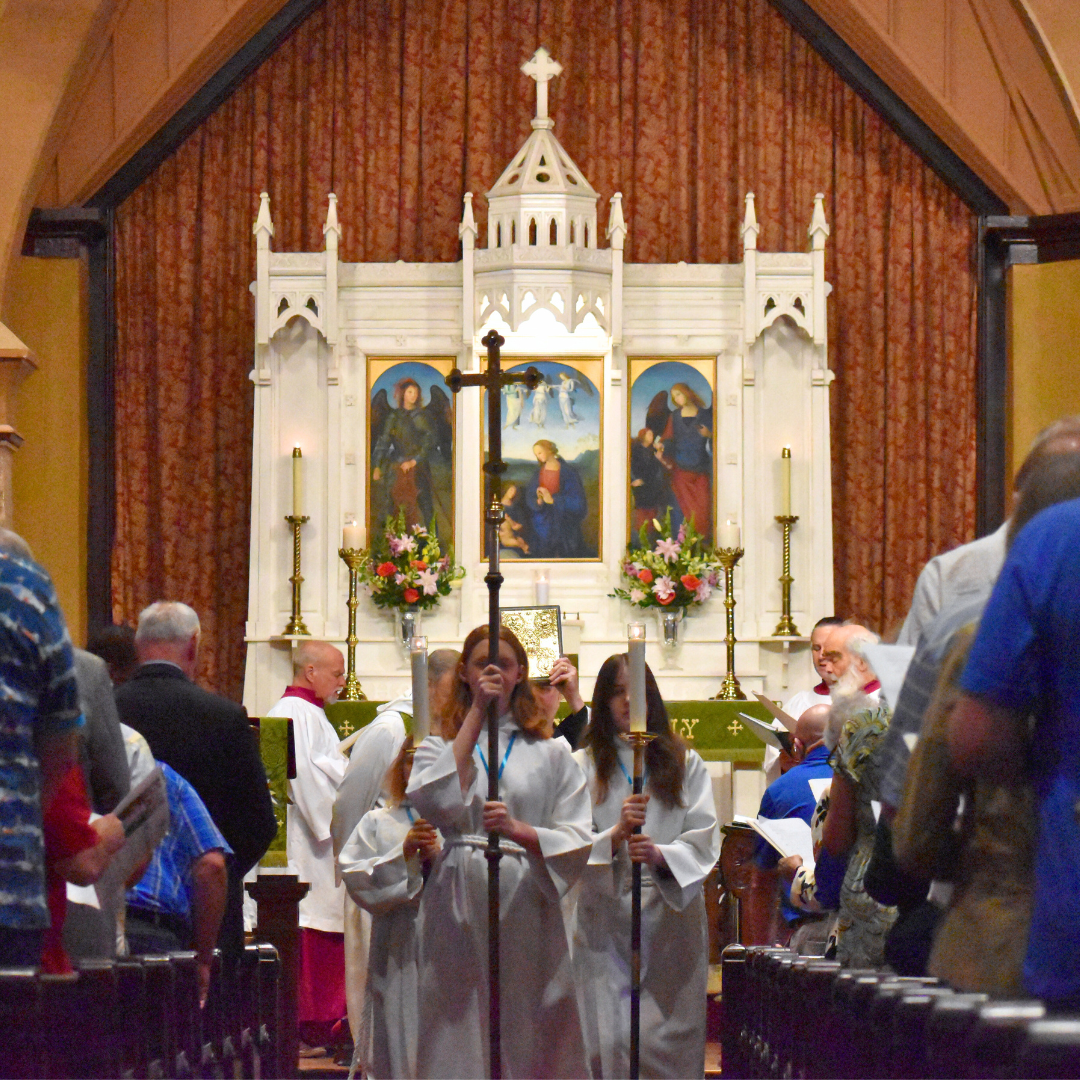
This week’s Old Testament Lesson – Joel’s message of restoration symbolized by a bountiful harvest – and the parish’s ingathering of pledges, dubbed ‘Harvest Sunday’, combine to form a theme of thanksgiving throughout Sunday’s services.
The liturgy begins with a hymn new to the parish, though we will sing it to a very familiar tune. ‘Our Father, by whose servants’ [289] is appointed in the Hymnal for the (anniversary of) the Dedication of a Church. Its themes – God’s blessings and mercies; the Church’s and parish’s members past, present, and future; and our responsibility to those yet to come – broaden its application, however, to other occasions focused on the parish and its life. Singing this hymn to S.S. Wesley’s tune ‘Aurelia’ also connects it to the text now usually sung with that tune, ‘The Church’s one foundation’, which has often been associated in this parish with stewardship and our legacy. ‘Our Father, by whose servants’ was written in 1920 by George Wallace Briggs, a Church of England clergyman further represented by three other hymns in our Hymnal.
At the Offertory, during which (as anciently, and as the English Reformers again envisioned) the people will bring their gifts forward and offer them themselves, the choir will sing a setting of Psalm 100, which is also appointed for Thanksgiving Day in this lectionary year. Indeed we will, as the psalm says, ‘come before [God’s] presence with a song’ and ‘enter his gates with thanksgiving’ for God’s goodness, mercy, and faithfulness. The driving modern music, making use of mixed meter (irregular groupings of two and three pulses) and a constantly shifting tonality, is the work of Christopher Walker.
Given the expected duration of the Offertory, this anthem will be followed by the hymn ‘Praise to God, immortal praise’ [288]. This text is drawn from a hymn of nine stanzas, the work of Anna Laetitia Barbauld (1743–1825), an English poet, essayist, critic, educator, editor, and children’s author who paved the way for other women to publish and otherwise be active in the public sphere. The original text is headed ‘Praise to God in Prosperity and Adversity’; the Hymnal text, focusing on ‘Prosperity’, uses parts of the first several stanzas, substantially editing portions that have not aged well, and omitting altogether the second half of the original, a paraphrase of Habakkuk 3.17–18 focusing on ‘Adversity’. The result is a satisfying hymn that establishes God’s providence as a product of divine love, and likewise sets our response of generous thanks in the context of ‘deeds of kindly love’.
The liturgy ends with ‘Now thank we all our God’ [397], a classic hymn dealing with thanksgiving, God’s wondrous works, our family relationships, and God’s bounty and love. Though it was written by German clergyman Martin Rinckart as a table grace around 1630, it became so popular after its publication that it was widely sung to celebrate the end of the Thirty Years’ War in 1648: a popularity it has retained ever since. The tune was written by Johann Crüger, an important hymnal editor and hymn-tune composer in mid-seventeenth-century Germany, a number of whose tunes are found in our Hymnal.



Login To Leave Comment